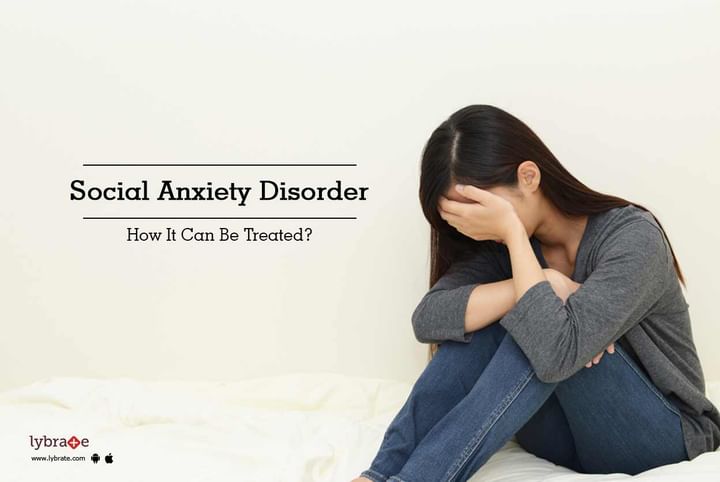Social Anxiety Disorder - How It Can Be Treated?
While many of us may feel the pressure of appearing in large social gatherings, there are those who feel positively crippled at the very thought of showing up and interacting with many people at a time. There is a difference between the two scenarios where one may down to an introverted nature, and the other may be a symptom of a greater problem like social anxiety disorder. So what exactly is this condition all about? Here is everything you need to know!
Definition: By definition, social anxiety disorder is marked with many issues including the feeling of pressing self-consciousness, as well as anxiety, fear and embarrassment. All of these may be caused in the natural course of everyday interactions as well. It is a condition where the patient cannot cope with normal interactions without the support of medication and therapy.
Symptoms: There are a number of symptoms which can help in recognizing this condition. Constant worry and concern that one may end up humiliated on a public platform or while having the most mundane discussions at work or at a party, is one of the most pressing symptoms of this condition. Further, the patient will also be fearful of offending people he or she may be interacting with. Also, after an interaction or presence at a gathering, one may sit down to analyze the performance in great detail and be constantly critical of the same. Anxiety may also make the patient avoid any kind of social situation in extreme cases.
Causes: There are a number of things that may cause such a condition. The genetic makeup of the patient may make this an inherited condition that may happen if there were one or more people in the direct family who were suffering from this condition. Also, it may be caused due to changes in the amygdala, which is the part of the brain that controls one’s responses to fear. A person with an overactive amygdala may end up feeling more scared than normal of the most everyday things. Social anxiety disorder can also be a learned behaviour which may come up due to environmental issues like being reared by parents who have been severely overprotective of their children.
Treatment: There are many ways of treating this condition. To begin with, one can turn to psychotherapy. With the help of such therapy, the symptoms can be handled with the help of proper discussions and the programming of new ideas into the brain so that the fear and anxiety gradually recede. Cognitive behavioural therapy is one of the most favoured forms of therapy that psychiatrists consider in such cases. Medication like norepinephrine reuptake inhibitors may also be prescribed for the patient so as to control the amygdala. Further, one may also have to sue antidepressants prescribed by a medical practitioner so as to deal with the anxiety and fear on an everyday basis. Also, one may use beta blockers that affect the way adrenaline functions, by curbing the excess production of the same. If you wish to discuss about any specific problem, you can consult a Psychiatrist.



+1.svg)
